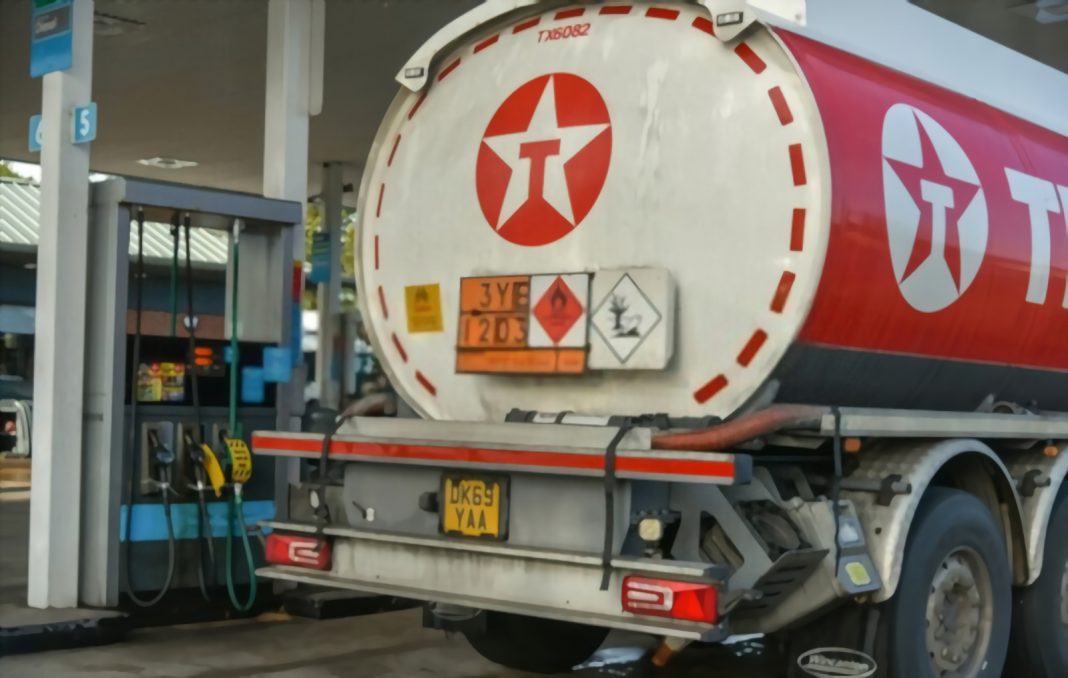The UK has been facing fuel shortages for more than two weeks now. With the influx of people into petrol stations last weekend, 90% ran out of fuel in some parts of the country. The UK is facing a fuel crisis these days due to a shortage of HGV drivers to distribute it. The government announced last Friday that 200 troops, including 100 army tanker drivers, have completed the relevant training and can start distributing fuel in the country from Monday.
UK Reaches Out to the Germans to Resolve the Fuel Crisis
A few days ago, the Department for Transport (DfT) called on thousands of certified German nationals to help resolve the fuel crisis in the UK, even if they had never driven a lorry before. The UK has also sent letters to German drivers and potential troops asking them to help resolve the fuel crisis. According to the German media, in a strange move, letters were sent to German licence holders living in the UK, offering them to start working as lorry drivers with good salaries and benefits.
Strange Suggestion by Boris Johnson’s Deputy
Dominic Raab, the British deputy prime minister, has made a strange and unusual proposal to solve the shortage of HGV drivers in the UK, which has led to a fuel crisis and many problems in the supply chain.
Dominic Raab, Justice Minister since the recent cabinet reshuffle, told The Spectator: “We have let prisoners and criminals work on a voluntary, unpaid basis … Why not let them do paid work when there are bottlenecks, if there is an economic and social benefit?”
The Exit of European Workers from the UK in the Post-Brexit Period
Freedom of movement for workers ended with the completion of Brexit. Now, there are expensive visa procedures for EU workers wanting to work in the UK. This is one of the reasons why many lorry drivers have left and petrol stations in the UK are now running out of fuel and shutting down. Long queues have formed in front of petrol stations in many parts of the country. It is estimated that there is currently a shortage of about 100,000 lorry drivers in the country. Many European drivers returned to Europe after Brexit, and it is estimated that more than 20,000 skilled workers from Eastern Europe have also left the UK. In addition, the Covid-19 pandemic has hampered training and driving tests. Large numbers of training courses and driving tests have been postponed.
The Fuel Crisis Has Created Chaos for Doctors, Pharmacies and Farmers
British doctors have also warned that they will soon be unable to get to work due to fuel shortages. The government is currently considering some arrangements, including temporary visas for foreign lorry drivers and some other exceptions. But none of this is helping improve the situation much. The Guardian reported on Friday, quoting officials from The National Pharmacists Association (NPA), that pharmacies have also been hit hard by the fuel crisis in the country.
The entire medicine supply chain in the UK has been severely disrupted due to the crisis, and delivery of pharmaceutical items to pharmacies is being hampered. The National Pig Association (NPA) also recently reported a shortage of butchers and slaughterhouse staff, which put 100,000 pigs at risk of mass slaughter, and this could lead to severe shortages for Christmas Eve.
Army Troops Arrive to Help Resolve the Fuel Crisis
On Monday, by order of the government, the British army entered the distribution cycle in this country to solve the fuel crisis. The army, with about 200 troops, 100 of whom are tanker drivers, is helping to resolve the crisis in UK with the operation initially targeting London and the South East, where the worst fuel shortages remain.
The British Army entered a BP oil depot at the behest of the government to assist in the fuel distribution process. Speaking to LBC, Chancellor Rishi Sunak said the measure was an “extra precaution” and insisted the situation is “improving”. However, he refused to guarantee the crisis would be over by the end of the week. “As demand levels return to normal, the situation will return [to normal], but that’s a hard thing to precisely forecast. People should know we’re doing everything we can, I know it’s frustrating”, he said.
British Petrol Stations Are Still Closed
Despite all the measures taken, dozens of petrol stations in the UK are still closed. According to the Petrol Retailers Association (PRA), which represents about two-thirds of petrol stations in London and the South East, about 22% of petrol stations in these areas still do not have fuel. Brian Madderson, PRA chairman, was quoted as saying: “The fuel is still not going to the pumps that need it most in London and the South East.”
Working as a lorry driver is no longer attractive to non-British people since Brexit has been finalised. This has been more difficult than before, because borders with Europe have been closed and there are many bureaucratic obstacles. The government, of course, denies that Brexit played a role in the situation and considers the outbreak of Covid-19 to be one of the real causes of the crisis.
The UK government considers the fuel crisis a problem for the whole of Europe and does not see it as being specific to this country. After 47 years of membership, the UK formally withdrew from the EU in early January this year. The government says it has reached an agreement on the future of trade cooperation with the EU. But in practice, this departure has created huge problems, especially for the UK. It is not clear how effective the military will be in helping to resolve the fuel shortage crisis, especially as petrol stations continue to remain closed and demand for fuel is on the rise.

